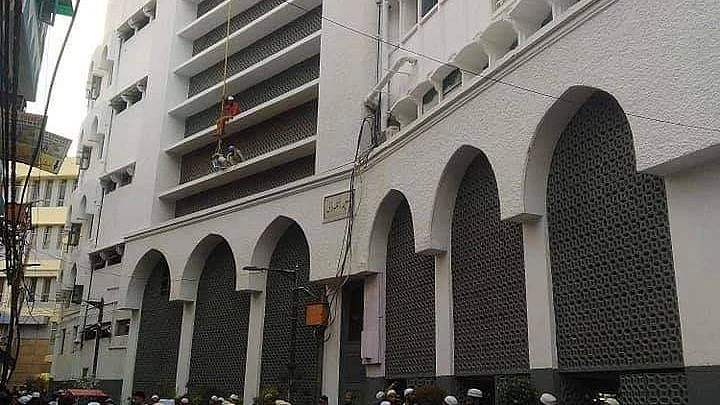The Delhi High Court on Monday, 12 April, observed that there will be no cap on the entry of devotees at Nizamuddin Markaz, also known as Banglewali Masjid, when other religious places have no such sanctions.
The Delhi HC directed the Centre and Delhi Police to open up Masjid Bangley Wali for prayers during Ramzan, in accordance with Delhi Disaster Management Authority (DDMA) guidelines, reported The Indian Express.
The court order, as per the report, stated that the prayer area for Namaz will be measured on Monday itself, and blocks will be made following social distancing norms, to mark where prayer mats can be put for devotees.
The matter has been listed for hearing on Tuesday, 13 April.
What the Court Said
Justice Gupta said, as quoted by The Indian Express:
“A 200-people list is not acceptable; that cannot be. Yes, you will make the exact area of the mosque, how much it is and tell me. As per social distancing norms, how many people can come in that mosque and so we will permit only that many people at a time.”
Justice Gupta further asked the Centre whether any such similar restrictions have been placed on other religious places of worship, and “what is the maximum number that has been given for each of the religious places”.
Nair responded in the negative, stating that the management of each religious institute determines that number, reported The Indian Express.
The Court’s Suggestions
Noting that religious places are an open space, without a fixed number of devotees, Justice Mukta Gupta rejected Advocate Rajat Nair’s submission on behalf of the Centre of maintaining a police verified list of 200 persons, of which only 20 will be allowed to enter the premise for prayers, added the report.
The Delhi Waqf Board, represented by senior advocate Ramesh Gupta had submitted that they were willing to follow COVID norms, but it was difficult to compile a list of this sort, as per The Indian Express. They also agreed to the Centre’s submission that a camera be installed in the mosque by Tuesday, 13 April.
The court suggested that the names of those who are involved in the management of the mosque will be given by Waqf Board to the local station house officer. A joint inspection of the moque will be carried out by the Hazrat Nizamuddin Police Station’s SHO, and in the presence of a Waqf board member and an advocate, added the report.
Background
“The Delhi Waqf Board has learnt that the local police has prepared a list of only 5-6 people of the locality who alone can enter the mosque for the purpose of prayers,” noted the petition.
The plea, first reported by The Indian Express also highlighted how the mosque has been closed to the general public, nobody is being allowed to stay at the hostel in the premises, and children are not allowed to continue their education at the Madrasa.
Earlier, the Centre told the Delhi High Court that 50 people chosen by Waqf board can be permitted to offer prayers at the markaz once the names of those individuals are provided to the SHO of the area.
The Nizamuddin Markaz finally opened for Shab-E-Barat prayers on Sunday, 28 March, after being shut for a year, but not allowing more than 50 visitors at a time, following orders from Delhi High Court.
The markaz was locked after an FIR was lodged against people who attended Tablighi Jamaat event in March 2020 and the subsequent stay of foreigners during the COVID-imposed lockdown.
The submission to permit some individuals to offer prayers were made by senior advocate Ramesh Gupta and advocate Wajeeh Shafiq.
(With inputs from The Indian Express)
(At The Quint, we question everything. Play an active role in shaping our journalism by becoming a member today.)
